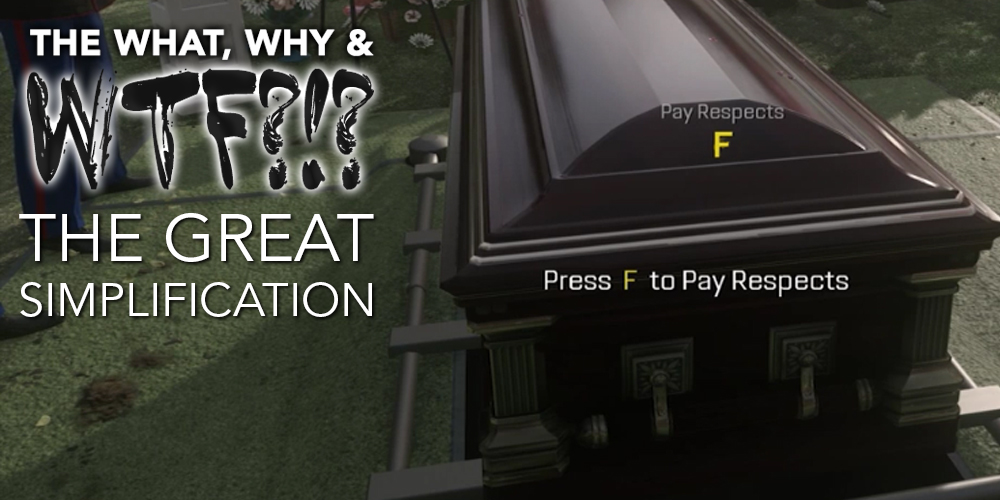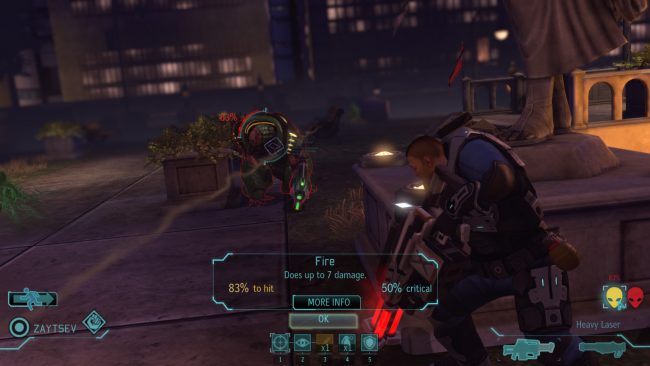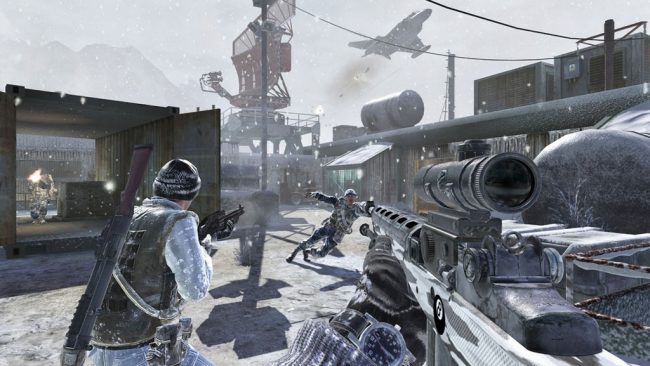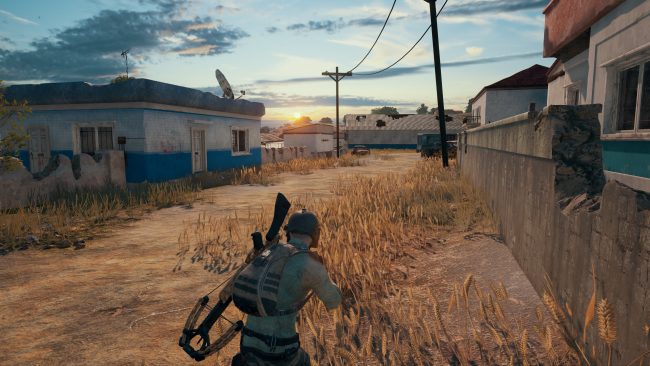
You know, I put down casuals a lot, but they have ruined everything. These guys are so brain-dead that an entire industry has had to appease them by dumbing everything down. The moment Destiny 2 launched, you just know that someone whined on a forum about how they couldn’t grasp the difference between pressing X and licking their toenails. Were the instructions too obtuse for you, Gerald!? Was indicating the colour, shape and placement of the button just a little unclear for you!? Well, thanks to people like you, I have to suffer through games that can’t trust me to use my hands instead of my earlobes.
A lot of people will rag on about how games these days are “too easy.” While I agree with these tired old fools, I don’t think it’s wholly correct just to say games are too “easy.” Too many games these days are too simple, too elegant in their design to allow for liberating gameplay. We’re stuck in designs that ask very little of us, and the crux of the issue is that games aren’t willing to let go of your hand anymore.

Just relax and take my fingers…
Modern video games are just too damn straightforward. It’s a sentiment that gamers of my generation probably feel a little too aligned with, including myself because I’m not a filthy casual. We live in the age of objective markers and dotted white lines, and their effect on gameplay is not subtle. We’ve gone from forging our path to following the carrot on the stick, stuck with design choices that demand less from the player but compromise the experience as a result. It’s not a matter of challenge because challenging games like Cuphead, Hollow Knight and (sigh) Dark Souls do exist; Games these days are too concerned with making sure you have fun a certain way.
Playing most games of late feels a bit like someone is pushing my head against my monitor and screaming, “No, do this to have fun.” The obvious example is Call of Duty (gotta love those corridors), but let’s consider the latest Assassin’s Creed. One of the missions in Origins has you search for the Book of the Dead, but it’s got an objective marker attached to it that’s always clearly visible. You’re not searching for it; you’re just going to it because that’s what the quest needs, and that’s how fun works, right? The mission is so directed and oversimplified that it’s difficult to find any satisfaction in it, and I’ll bet you’ve had a few games where this has happened. If you’re still not convinced of the trend, one need look no further than remakes of the classics.

Good game? Sure. A little oversimplified? Without a doubt.
The most prominent indicator that games are dumbing down lies in how old franchises are being remade. The latest series of X-COM titles, while excellent, significantly downscaled almost every aspect of the game from the originals, for better or worse. Rainbow Six: Siege has made a resurgence as of late, but it’s still a long way from the planning-heavy originals that punished the arrogance of winging it. Fallout 4 simplified the dialogue system to the point where it was hard to figure out what your character was even going to say. The modern design mentality is one that is more interested in giving the appearance of freedom rather than freedom itself, but why has this become the mainstream? Well, it’s just not the ‘90s anymore, man.
The market has changed. Thirty years ago, video games were very much targeted at the youth, but the average age of a gamer is now 34 years old. Those kids grew up, and they may have kids that chew into their gaming hours. Parents have less time than their offspring, so games can’t be so dense that it takes weeks to get through. Sure, some people will commit to learning Hearts of Iron for weeks on end, but it can be hard to keep it up when you feel drained after working 8-6. This is helped in no part by the rush of notifications you’ll be getting on your phone.

The internet age brought with a new era of human connectedness, so regardless of where I am on the planet, my mum can ask if I’m warm enough
People are less patient than they were in the old days. Our lives have sped up as interconnectivity has increased, and with more addictive and ever-present services like Facebook, Twitter, Snapchat, Tinder or any other thousand services, distractions are rife. Our attentions have been forced to spread thinner and thinner over the years, and we can’t hone in on a game for an extended period without another god damn message from someone. This has ended up with games being designed with these things in mind, including pausable/skippable cutscenes, briefer round times and “more accessible” gameplay. None of this would be possible without an interconnected dev community, though.
Game design has come a long way, so designers don’t have to reinvent the wheel to make a game anymore. There are standards, communities and textbooks dedicated to making games. To that end, it’s a lot easier to hone in on what makes people tick, and that includes keeping games simpler than an encyclopaedia collection. If we can pinpoint what it is that works on people, we can get them engaged quicker and remove a lot of the fluff older games included. Sure, we can make more in-depth games, but if you can save time and money by keeping things straightforward, why wouldn’t you? You can hone in on what you do best and craft a unique game, though this might not help too much.

Uniqueness doesn’t mean good, by the way
Now, hear me out, because this is some tenuous noise that’s about to spurt from my keyboard, but the reason games are so simplified is because there’s so god damn many of them. There are a staggering number of games on the market, and there’s no way a single person could play them all. More straightforward games can be completed (or played at all) faster than convoluted ones, so players won’t get angry that a game drags on, but that’s not quite what I’m getting at. I don’t mean that there are too many games and we want to play them all; I mean that there are too many games that we’ve become familiar with.
With so many games out there, there’s bound to be some overlap between them. This is intentional to make a familiar experience, and in fact, we crave the familiar. If we’re given spoilers to a movie, we end up enjoying it MORE than if we went in unspoiled. We cling tightly to what we know, and it’s why Macca’s is so popular over the globe. We know what we’re getting, and we know that it’ll be garbage, but it’ll be familiar, greasy, comforting anti-hangover garbage. If we generalise this idea to mechanics, then we start to see why games are becoming so much more straightforward.

Even if you don’t know what game this is, you already know how to play it
The complexity of older games can be boiled down into its mechanical concentrate. We’re seeing more games take the ideas of old games, dilute them and repackage them as familiar experiences with a twist. We recognise the mechanics between games because they’ve been designed to be immediately recognisable, even if they’re dumbed down. If you play the new X-COM, you’re going to recognise the vibe of it because of the old ones, but now the excessive complexity has been diluted. You’re familiar with the ideas and gameplay, even though it’s a less convoluted, more elegant version of it. You don’t need a 300-page manual to dive in, but half the fun lies in figuring out that system.
Games that hold your hand are fine, but there’s a great deal of joy lost when you’re told how everything works. When you get a new gun in Call of Duty, your first thought isn’t, “Let’s see those stats,” it’s, “Let’s see what this bad boy can do.” Discovery is a crucial part of the learning process, and it can be an incredibly fun one. When the game ensures that you’re following a particular path or removes confounding mechanics, you can be left with a stale, uninteresting experience that merely checks all the boxes. They feel too simple, too elegant, and most importantly, too easy.

And if we could heed this advice while moving away from Battle Royale modes, that’d be great
While it’s easy to point the finger at games becoming too easy, it’s more likely that we’re growing too accustomed. We’re older, wiser and more familiar with games than ever before, so it’s not surprising that we’re just better at games than we used to be. However, it’s evident that games are being designed with a lot more hand-holding to ensure we have fun the “right way,” despite ruining the experience in favour of assisting casuals. That’s what all this boils down to, after all, is helping out the casuals, like Gerald, a man so incompetent that his favourite game is Uplay. Yeah, let’s cater to him, shall we?











